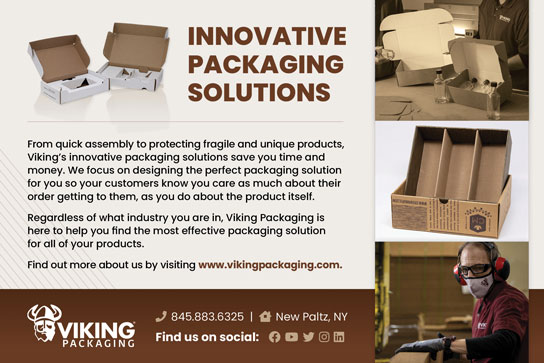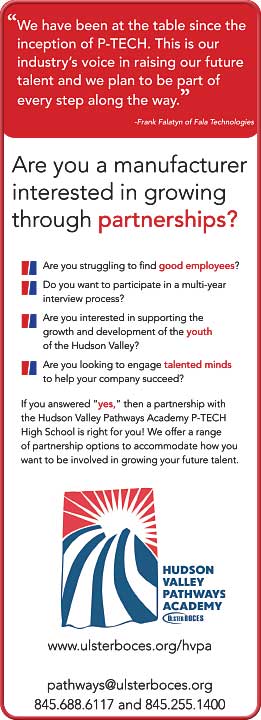DEVELOPING TOMORROW’S LEADERSHIP | HAROLD KING
ADVANCING MANUFACTURING THROUGH LEADERSHIP CERTIFICATION

Supervisor, Manager, Team Leader, Shift Lead. Whatever you may call them at your manufacturing business, managers and supervisors can have the single largest impact on your organization. A good (or bad) manager or supervisor affects employee performance and satisfaction, safety, productivity, turnover, and the overall health of any organization. They are the link between the production floor and the C-suite, the difference between success and failure, on-time or late delivery, profit or loss.
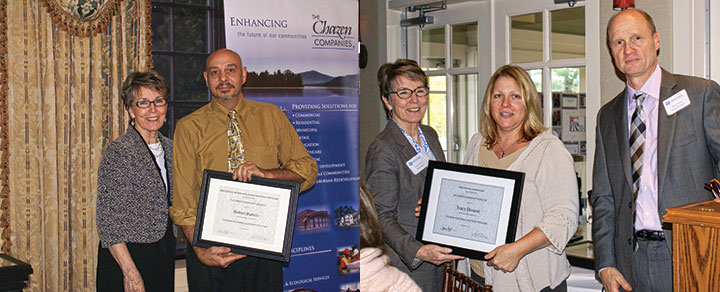
CELEBRATING 25 YEARS OF INSPIRATION
Yet these critical employees are not always given the support or resources they need to be successful. Often promoted directly from the factory floor to the supervisor role, they suddenly have a host of new responsibilities, including managing the very people who they were only recently working alongside.
It is for these people that the Council of Industry’s Certificate in Manufacturing Leadership was developed. The program, nine full days of training, covers a wide range of topics, including Positive Motivation and Discipline, Problem Solving and Decision Making, Business Communication and Basic Financial Management. Enrollees learn not only how to effectively lead people, but also their role in the company’s overall success and profitability.
Council of Industry training in this area has evolved over the years. In the 1950s and ‘60s, the Council annually hosted a one-day “Fundamentals of Supervision” training that emphasized the disciplinary role of the supervisor. By the 1980s, we had adopted the “One Minute Manager” with its three practical management techniques of one minute goals, one minute praises and one minute reprimands.
By the 1990s, however, it was clear that Hudson Valley Manufacturers needed more. The sector was undergoing significant changes and the impacts of global competition, regulatory and legislative changes and technology were making the role of the front-line supervisor more complicated and more challenging. The role, in fact was shifting from one of “supervision” to one of “leadership” and we needed to develop a training program to prepare people that changing role.
To develop this program, the Council of Industry partnered with Dutchess Community College, connecting a committee of interested manufacturing members with the college’s Community Education program. Together, the college, led by Associate Dean Andy Sillin, and the Council mapped out a set of skills that emerging manufacturing leaders would need to be successful and organized them into six days of training, including Fundamentals of Leadership, Making a Profit, Effective Business Communication, and Fundamentals of Safety and Health.
To organize and promote the program to members, the Council of Industry hired a part-time training coordinator. State Senator Stephen Saland, a longtime supporter of both Dutchess Community College and manufacturing, secured a small amount of state funding to help launch the training. The program was designed so that each course stood on its own, though individuals who took five of the six courses would receive a certificate from both the College and the Council of Industry.

The program was launched officially in 1997 with six individuals completing the requirements to receive the Certificate in Manufacturing Leadership. One of those first graduates was Christine Pompa — currently Vice President of Quality at food-tech startup Wonder, but at the time, a young supervisor at Council member Chemprene in Beacon — believes the training had a lasting effect on her career.
“To be honest, I didn’t think much of it at the time,” Pompa recalls. “But reflecting back on it, the course content and training that I received helped to shape my successes in both manufacturing and quality. I have had a unique position of being able to experience both facets of the business and the practical skills obtained through the program were paramount. These are things they do not teach you in college and make all the difference when leading dynamic teams. Manufacturing in the U.S. is a tough win but having the proper training helps create success.”
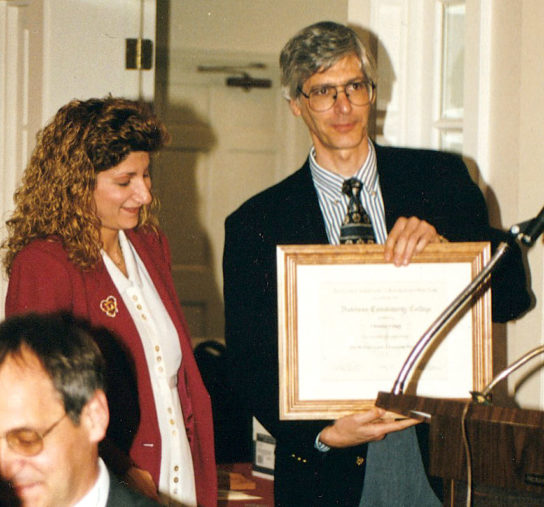
Since 1997, more than 300 people have received the Certificate of Manufacturing Leadership at dozens of programs with multiple community college partners.
One great strength of the program is the quality of the instructors who deliver the training. Throughout the years, all of the instructors come to the program with deep experience in the private sector. In fact, most are practicing in their field as attorneys, CPAs, engineers, and consultants. This gives them credibility with the participants and helps them build rapport. Whether its labor law from attorneys from Jackson Lewis, safety and health from a risk management expert from The Reis Group, or financial management from a CPA from RBT, the courses are delivered by actual practitioners.
Steve Howell, CPA and Partner at RBT CPAs appreciates the opportunity to present to these emerging manufacturing leaders and share his financial expertise. “In addition to helping out the Council of Industry by teaching these classes, I really enjoy explaining this important material,” Howell says. “Making a profit is what manufacturing firms are in business to do and helping participants understand where they fit in and contribute to that profit making is rewarding to me.”
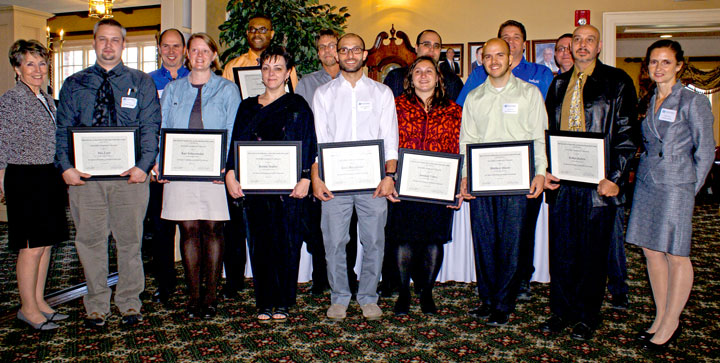
The program is continuously improving based on the feedback of participants and the member firms that send them. Whole courses have been added and some eliminated. Fundamentals of Leadership, for example, now includes the DiSC assessment and Best Practices and Continuous Improvement replaced Train the Trainer.
“The fact that the program is constantly being evaluated and is evolving to meet the current needs of manufacturers keeps it relevant,” said Ken Breitman, VP of Human Resources at Zumtobel in Highland. “I know that the people we send will have the most up-to-date information and skills they need to be successful. Our people come back with a better understanding of how businesses operate and why.” In March of 2020, 16 people were enrolled in a session of the program being held at Dutchess Community College when news of the COVID lockdown came. The Council of Industry and DCC scrambled to put first one course online… then a second… then a third… then the remainder. While the instructors were willing to try, and the enrollees logged in, there is no doubt that the quality of the program suffered.
Once it became clear that on-site instruction was not going to be an option for at least a year, Council of Industry Vice President of Workforce Development, Johnnieanne Hansen, stepped up to reformat and re-invent the program to work for remote learners. Drawing on her experience as a trainer and adjunct instructor, she worked with CML instructors to help them tweak their lessons and activities and master the remote meeting platform (we use Zoom).
The resulting program maintained its high-quality instruction while allowing greater accessibility. Members were able to enroll individuals who otherwise could not have attended due to the travel distance. Attendees have logged in from their desks from as far away as New Jersey and Ohio.

{caption: SUNY Chancellor Nancy Zimpher presents Aki Owens, Zumtobel employee, with the Manufacturing Leadership Certificate in 2015.}
One aspect of the in-person training that has been difficult to recreate online is the networking and cross pollination of ideas that occur when attendees in similar roles and situations get together in one place and are exposed to new concepts and ideas.
“Individuals in the training learn from each other almost as much as from the instructors — I’m pretty sure even the instructors would agree with that,” says Johnnieanne Hansen. “We get some of that online, with break out groups and exercises, but there really is no substitute for the side conversations over coffee or during breaks. That’s why we are looking forward to offering both in person and remote options.”
Over the past 25 years, manufacturing has changed tremendously and the Council of Industry’s Certificate in Manufacturing Leadership has changed right along with it to grow the knowledge and skills needed to develop the sector’s most important resource: its people. In the years to come, the CML will continue to evolve to meet this dynamic sector’s growing needs.



